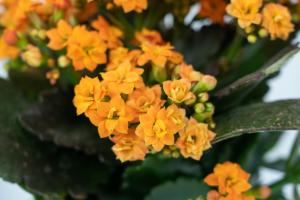Will House Plants be OK with Tap Water?
Watering your houseplants is an essential task to keep them healthy and thriving. However, what kind of water should you use? If you're like most people, you use tap water. But is tap water safe for your houseplants? Let's explore this question a bit more.
The Quality of Your Tap Water
The safety of tap water can vary depending on where you live. Municipal water sources typically treat and purify water to remove any harmful contaminants. However, they may add chemicals like chlorine and fluoride to kill bacteria and promote oral health. While these additives may be safe for human consumption, they may cause harm to your plants. Chlorine and fluoride can build up in soil and cause toxicity, leading to stunted growth, wilting, and discoloration of the leaves.
If you live in an area with high mineral content in the water, you may also experience hard water. Hard water has high levels of calcium and magnesium, which can accumulate in the soil and hinder the uptake of nutrients by your plants. This can cause yellowing, stunted growth, and even plant death.
Ways to Improve Tap Water for Your Plants
If you're concerned about the quality of your tap water, you can take some steps to make it safer for your plants:
Letting tap water sit for 24 hours before using it on your plants can help to dechlorinate the water. The chlorine will naturally evaporate, leaving behind water that's much safer for your plants.
If you have hard water, you can boil tap water and let it cool before using it on your plants. Boiling water can reduce mineral content and make it safer for your plants.
You can also use filtered water, like water from a brita filter, to remove any harmful contaminants from your tap water.
Alternative Water Sources for Your Plants
If you're still not comfortable using tap water, there are some alternative water sources you can use:
Rainwater is an excellent choice for watering your plants. It's chemical-free and packed with minerals that your plants need.
Spring water is another great option. It's naturally filtered and contains essential minerals that your plants crave.
You can also use distilled water, but only in small quantities. Distilled water is free from minerals and additives, but it lacks the nutrients that your plants need for healthy growth.
Conclusion
In conclusion, tap water is generally safe for your houseplants, but the quality may vary depending on where you live. If you're concerned about the quality of your tap water, you can take some steps to make it safer for your plants. You can also use alternative water sources like rainwater or spring water.
Watering your plants with the right kind of water is essential for their health and well-being. By following the tips and advice in this article, you can ensure that your plants thrive and stay healthy for years to come.

 how many times do yo...
how many times do yo... how many planted tre...
how many planted tre... how many pine trees ...
how many pine trees ... how many pecan trees...
how many pecan trees... how many plants comp...
how many plants comp... how many plants can ...
how many plants can ... how many plants and ...
how many plants and ... how many pepper plan...
how many pepper plan...






























